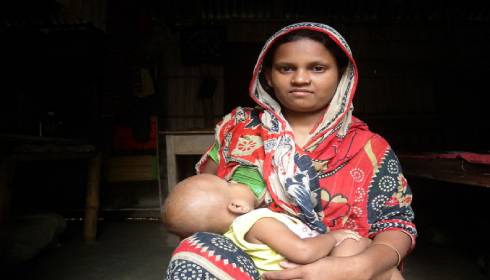
Breastfeeding newborn infants may lower the risk of infection by antibiotic resistant bacteria, finds study.
Rajeev Choudhury
The study was carried out at the University of Helsinki and published in the American Journal of Clinical Nutrition recently.
According to the researchers, antibiotic resistant pathogen load in the gut was lower among the breastfeeding newborns as compared to those who were on processed infant milk products.
This lessened burden (of antibiotic resistant bacteria in the gut) may lower the risk of difficult infections, the researcher noted.
A considerably higher abundance of resistance genes was seen in children whose diet consisted at least partially of infant formula compared to children who were exclusively breastfed or consumed donated breast milk, they further noted.
Dr Katariina Pärnänen, the lead researcher of the study said, “The results were confirmed and the model further honed by reanalysing the gut microbiota data of more than 600 newborns collected in prior studies.”
“In this dataset too, infant formula was associated with a roughly 70%, increased the occurrence of antibiotic resistance genes in the infants' gut, more than the other factors,” she added.
Compared to the preterm newborns, who were fed only breastmilk, the preterm infants who received infant formula had approximately twice the number of resistance genes in their gut, and the effect of infant formula was particularly pronounced in premature infants and infants who had been exposed to antibiotics, the study further revealed.
“Breastmilk is the primary source of nutrition for all infants, and its health benefits are of particular importance to premature infants,” Pärnänen says.
“The new findings indicate that breastfeeding premature and newborn infants also reduce the proliferation of bacteria resistant to antibiotics in the infants' gut, thus potentially reducing the risk of difficult infections, which I consider a particularly important find due to the ever-increasing prevalence of antibiotic resistance,” she added.
The United Nations Children’s Fund estimates that India accounted for 62% of the total infant deaths from South Asia, which was 1.1 million, many of these deaths were caused by antimicrobial resistance.
In an earlier study led by Dr Vinod Paul of the All India Institute of Medical Sciences, New Delhi, the report of which was published in the Lancet, the researchers found that more than 15% of the infants born in Delhi were at the risk of being dying due to sepsis caused by multidrug resistant pathogens.